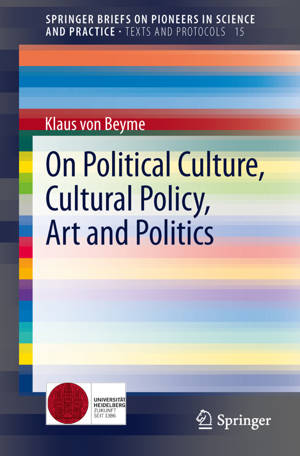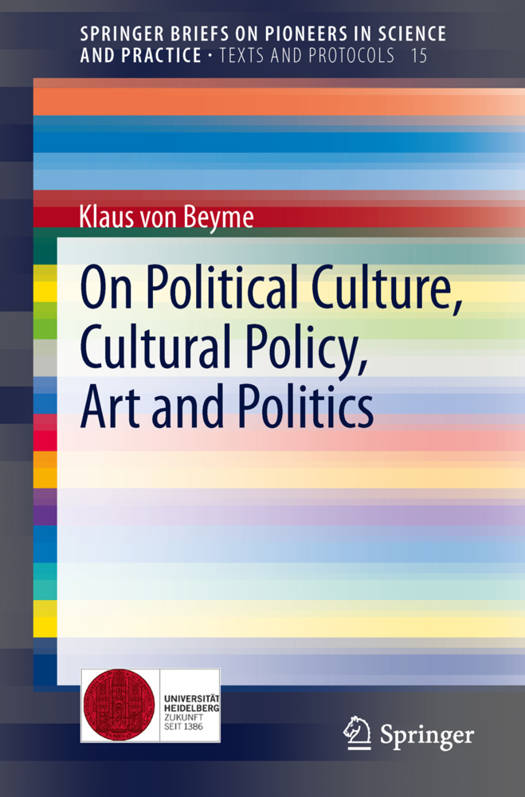
- Afhalen na 1 uur in een winkel met voorraad
- Gratis thuislevering in België vanaf € 30
- Ruim aanbod met 7 miljoen producten
- Afhalen na 1 uur in een winkel met voorraad
- Gratis thuislevering in België vanaf € 30
- Ruim aanbod met 7 miljoen producten
Zoeken
On Political Culture, Cultural Policy, Art and Politics
Klaus Beyme
Paperback | Engels | SpringerBriefs on Pioneers in Science and Practice | Texts and Protocols | nr. 15
€ 52,95
+ 105 punten
Omschrijving
Klaus von Beyme is a distinguished German political scientist and recipient of the Mattei Dogan Award of Political Science (2012). In honour of his 80th birthday this book addresses political culture, cultural policy, art and politics. The first part on transformation theory analyses: "Historical Memories in Political Theories", "Historical Memory in Nation-Building and the Building of Ethnic Subsystems", "The Concept of Totalitarianism - A Reassessment After the Breakdown of Soviet Rule", "Political Culture - A Concept from Ideological Refutation to Acceptance in the Soviet Social Sciences", "Institutions and Political Culture in Post-Soviet Russia" and "Political and Economic Consolidation in Eastern Europe. Evidence from Empirical Data". The second part on cultural policies addresses "Why is There No Political Science of the Arts?", "Historical Memory and the Arts in the Era of the Avantgardes: Archaisme and Passéisme as a 'passéisme of the future'", and "Capital-building in Post-war Germany".
Specificaties
Betrokkenen
- Auteur(s):
- Uitgeverij:
Inhoud
- Aantal bladzijden:
- 159
- Taal:
- Engels
- Reeks:
- Reeksnummer:
- nr. 15
Eigenschappen
- Productcode (EAN):
- 9783319015583
- Verschijningsdatum:
- 2/12/2013
- Uitvoering:
- Paperback
- Formaat:
- Trade paperback (VS)
- Afmetingen:
- 156 mm x 234 mm
- Gewicht:
- 249 g

Alleen bij Standaard Boekhandel
+ 105 punten op je klantenkaart van Standaard Boekhandel
Beoordelingen
We publiceren alleen reviews die voldoen aan de voorwaarden voor reviews. Bekijk onze voorwaarden voor reviews.











